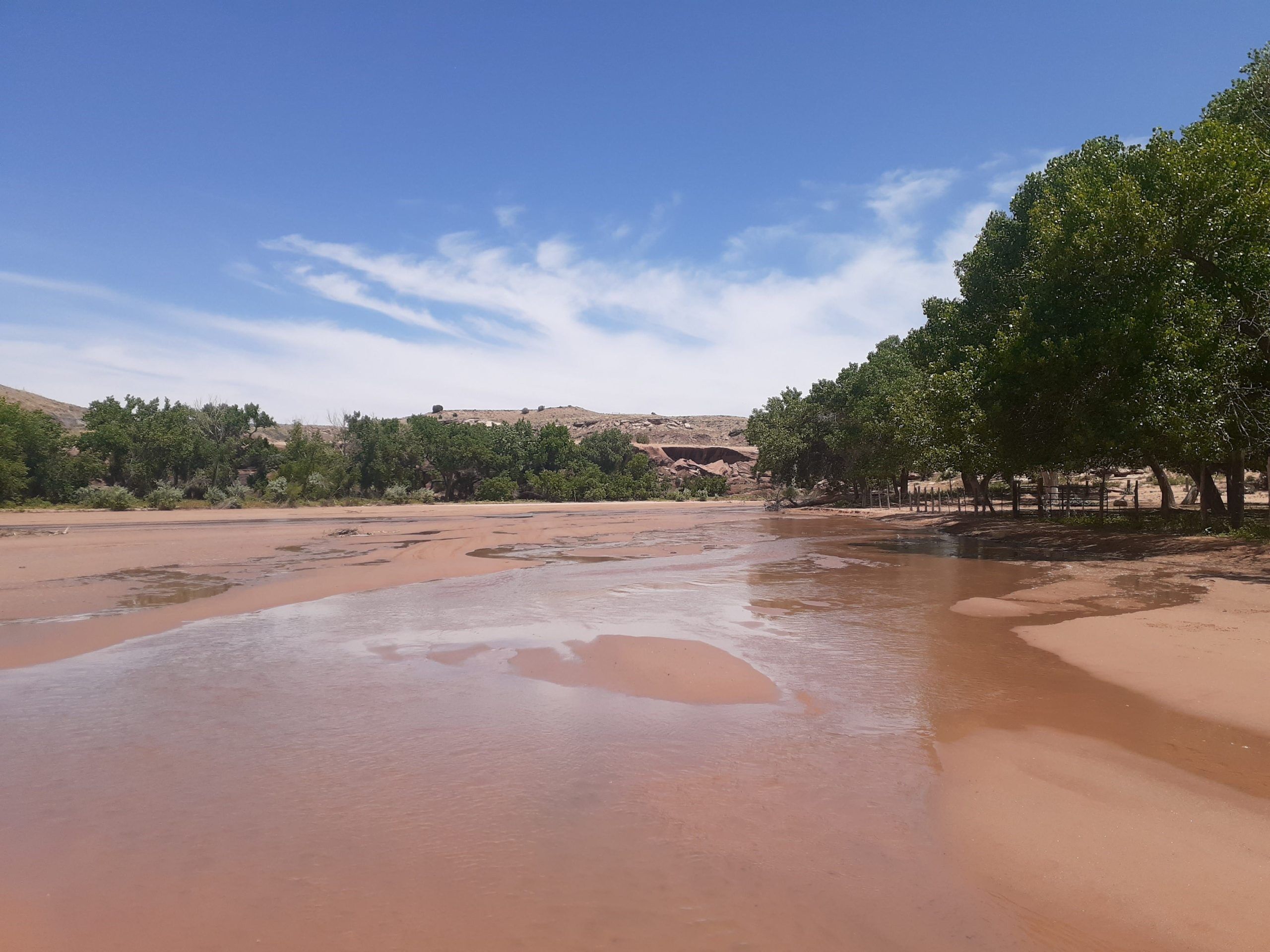By Clarice Begaye (Diné)
Diné College
Graduate 2023
Education is the process of either receiving or imparting systematic instruction or enlightening experience. It encompasses the transmission of knowledge, skills, and character traits. While formal education is widely recognized, there are also other forms such as common sense, street smarts, and cultural teachings. My father prioritized teaching me, as he believed in the significance of education for maintaining a balanced life, in alignment with the principles of Diné philosophy that emphasize harmony and balance.
This year I lost my father to stage four cancer. My graduation was a bittersweet experience. I had made a promise to myself to reach that stage and fulfill my father’s wishes and hopes for me, regardless of any obstacles. Amidst the roadblocks brought about by the pandemic, my father’s suggestion to pursue higher education provided me with a new perspective. Although his guidance helped me discover a new vision, it was ultimately my own enthusiasm and dedication that propelled me towards completing my goal. Throughout this journey, I have come to realize the profound impact that education, in all its forms, has had on my life. Like my mother and grandmother, Annie, I have become a torchbearer, committed to passing on the knowledge bestowed upon me by tending to the Central Fire.
My father told me we shared a similar battling spirit. I’ve been thinking a lot about his tenacity and his accomplishments. Maybe I’m writing this to remind myself of his lessons. We both received the gift of a unique education; we experienced, learned, and observed its impact. Perhaps this is what my parents and grandparents refer to as T’áá hwó ájít’ éego. Although there are many ways to interpret these words, for me, they speak to the need to accept accountability for oneself and one’s deeds, as well as having resolve. Creating goals, the actions you take to reach them, and making an effort to maintain an optimistic outlook, are what my father taught me about the Corn Pollen Path. In my community, education is transmitted through oral history and the life experiences of our elders. Oral history and the legacy of others have helped by preparing us for the obstacles in life and how to overcome them. This is a story about the importance of leaving a legacy that transcends time, in the form of oral history. It includes not only my journey but those of my parents and grandparents, and the significance of passing down oral history from generation to generation. This story also highlights the various influences and experiences that shaped my unique education.
The foundation of a home isn’t always made of timber or cement. For me and my father, the greatest foundation in our lives came from our mothers. My father was always a great source of support for me. He never sugarcoated anything and was always straight to the point. His way of teaching allowed me to think and reflect upon myself, rather than just telling me what to do. According to my father, humans are inherently flawed and tend to have an inflated sense of self-importance, leading to a feeling of entitlement. He always referred to individuals as human beings, emphasizing their connection to the earth and the sky in Diné culture. In our culture, the earth is considered our mother and the sky our father. He once drew symbols for earth, humans, and the sky in the sand, explaining the unique cycles each entity goes through and how they are interconnected in a symbiotic relationship.
He taught me that when there is an imbalance, the sky and earth will show us. He mentioned the stars would behave erratically, and unusual occurrences would take place. The earth would cause natural disasters because of overpopulation, or, if it is being harmed, it will let us know that it is suffering. Animals often can tune into this by exhibiting strange behavior. Being a traditional Diné astrologer, he often made predictions by observing the night sky. I was always amazed at how accurate his weather predictions were. He believed the first people disrupted the harmony of the world with their technology and their belief in their superiority over the creators (deities) and thinking they could replicate their powers in creation. Growing up this education included my environment and culture: a capstone in the pursuit of Hozho (“walking in beauty”).
Join us next week for the second segment of Keepers of the Flame.

